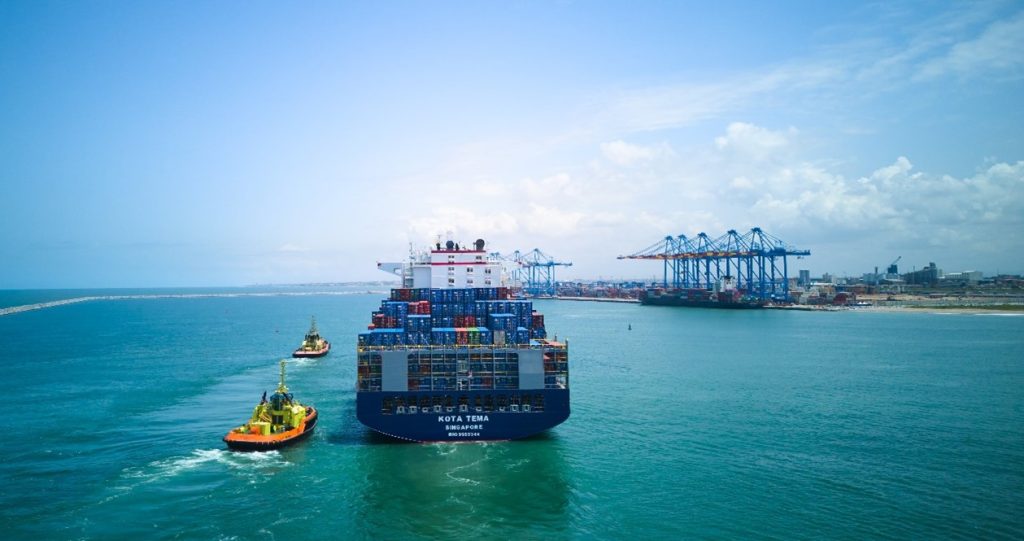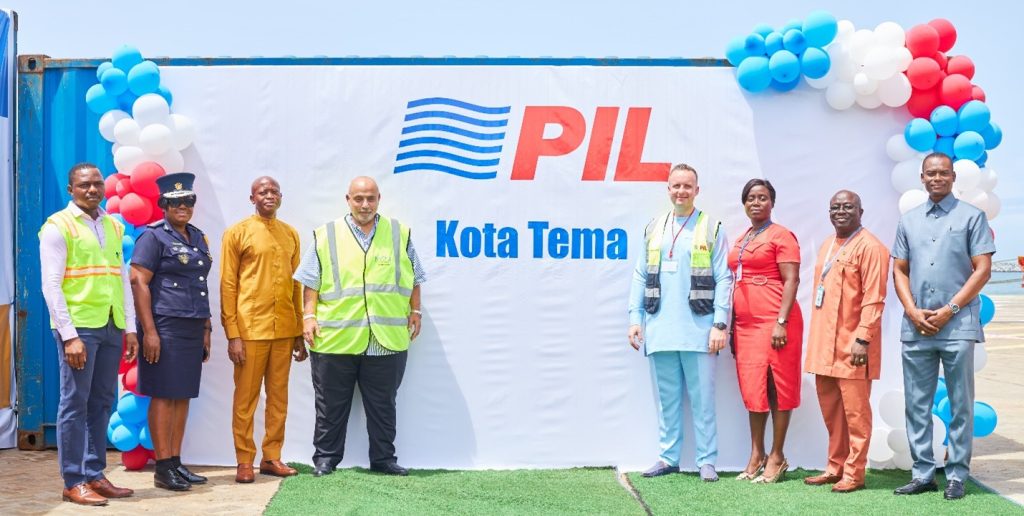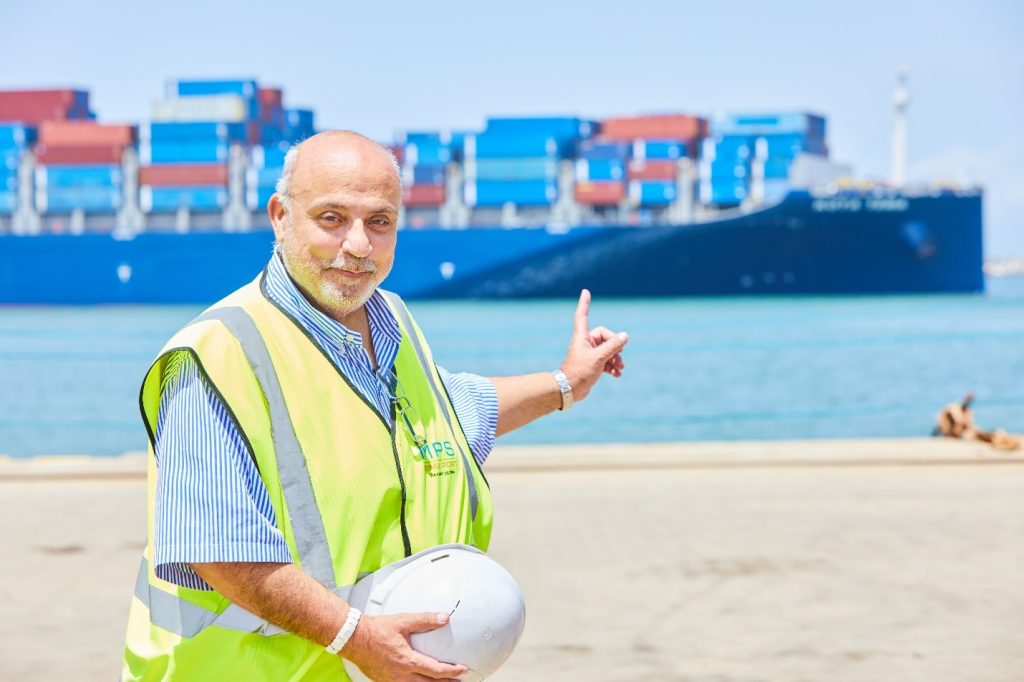The vessel KOTA TEMA, the latest generation Container Ship built in 2024, currently sails under the flag of Singapore and is operated by Pacific International Lines (PIL).
This impressive Lady, the largest vessel class deployed by PIL on the West Africa trade route, measures 272 meters in length overall (LOA) and 42 meters in width. It boasts a carrying capacity of 7,092 TEUs, with 73,172 MTs Gross Tonnage and a Deadweight (DWT) of 86,800 MTs.
KOTA TEMA’s maiden voyage began in the Far East on the South-West-Africa Container Service (SWS). After calling at several ports in China and South Korea, she set off from Singapore at full steam, with Tema being her first port of call.

During her stay in Tema, her “namesake city” that inspired PIL to name the vessel, the operations team at MPS Terminal 3 executed 1,797 crane moves, totalling 2,746 TEUs.
To mark the maiden call, PIL Ghana and MPS organized a ceremonial event attended by key port stakeholders, including the Ghana Ports & Harbours Authority, Customs, and Immigration, along with customers who gathered at MPS Terminal 3 to witness the arrival and berthing of this magnificent Lady of PIL.
The Director General of GPHA, Mr. Michael Achagwe Luguje, expressed his appreciation for PIL’s long-standing relationship with Ghana and was proud that PIL named their largest vessel on this trade route after the City of Tema.

In an interview with the CEO of Ghana’s leading business and financial media house (Ghana B&FT), the CEO of MPS, Mr. Mohamed Samara, highlighted the strategic elements required for Tema to be the first port of call in West Africa for several container liner services. These elements include robust infrastructure, operational efficiency, strategic location, connectivity, supportive policies, and a commitment to continuous improvement to meet global trade demands.

The CEO of MPS further elaborated on what it takes to be the first port of call for liner services;
Strategic Location:
- Tema Port is strategically positioned to serve as an entry point for goods traveling from the Far East to West Africa, minimizing detours and reducing transit times.
- It is close to major economic centres and markets in Ghana and West Africa, facilitating efficient distribution.
Infrastructure and Facilities:
- MPS Terminal 3 offers a deep-water harbour essential for accommodating large container ships commonly used on Far East trade routes. The terminal is equipped with advanced handling equipment and fully digitized processes.
- Adequate storage facilities, including refrigerated units for perishable goods, are available.
Operational Efficiency:
- Streamlined customs clearance processes minimize delays in cargo handling and ensure smooth transit.
- Availability of skilled labour for port operations and management.
- Fully digitalised processes using advanced technologies, including Terminal Operating Systems (TOS), Gate Operating System (GOS), Truck Appointment System (TAS), and Electronic Data Interchange (EDI).
Connectivity:
- Good road connections facilitate the onward movement of goods to inland destinations.
- Availability of several liner services to distribute containers to other regional ports and deploy feeder services.
Port Services:
- Efficient pilotage and towage services guide vessels safely into and out of the port.
- No vessel draft restriction for berthing vessels with drafts up to 16 meters.
- The port operates 24/7 with no navigation restrictions at night.
Security and Safety:
- Compliance with the International Ship and Port Facility Security (ISPS) Code ensures safety and security.
- Latest generation X-Ray scanners handle 100% of all container throughput.
- High safety standards protect workers, cargo, and infrastructure.
Environmental Considerations:
- MPS implements environmentally sustainable practices, including waste management and pollution control.
MPS’ Continuous Improvement:
- Ongoing investment in infrastructure upgrades and technological advancements to maintain competitiveness and accommodate future growth.
- Engaging with customers to gather feedback and improve services.
These strategic elements create favourable conditions for trade and industry in Ghana and beyond, shortening the logistics chain, boosting cargo safety and security, and facilitating cost-effective imports and exports with wider connectivity to global and regional markets.

No Comments